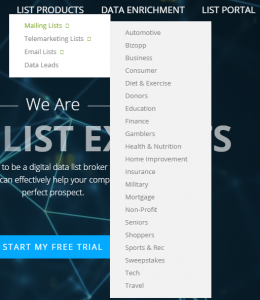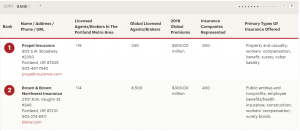Data. Nowadays, it's everywhere, and it's used for all sorts of things, from "improving our services" to "providing you with personalized content." We've talked about data collection practices and some of the obvious ways that it infringes on user privacy in the past, but we've never discussed in depth how data is used by businesses around the world to generate revenue and increase sales, and how the clandestine harvesting of your data results in very real profits for these companies.
Essentially, the value of data lies in the ability for these companies to make very, very educated guesses about what you're going to buy based off of hundreds of different variables, such as your gender, geolocation, previous purchases, search history, and perceived interests that can be gleaned from websites that you frequent, things that you post about on social media, among many others. These things may seem relatively harmless on their own, but when multiple data companies combine their datasets, it can create a very complete and scarily accurate projection of you as a consumer.

An example of the different kinds of lists you can purchase, and how they're broken down into separate categories on ListGiant.
Not only that, it can also be used to extrapolate much more personal and not-quite-so-public information about you, such as sexual orientation, relationship status, and even what direction you might vote in the next election, all of which can be used to present targeted advertisements for things that these companies might correctly assume you're interested in. Each google search, purchase on Amazon, liked post or page on Facebook, hashtag used on Instagram and ad clicked on only adds to an ever-growing pool of data that can be used by companies seeking increase their chance of converting you into a customer. Data processors profit directly from selling your information to other companies who want to market to you, and those companies profit by enhancing the chances that a targeted user is going to convert and purchase a product online.
The sheer depth of the information that they have on pretty much everybody who has a digital footprint is scary enough on it's own, but once you take into consideration that MOST companies already struggle to maintain adequate cyber security and follow basic security principles, that leaves a whole mess of information out there ripe for the taking if you're a cyber criminal. They can use that information to craft very specific and targeted phishing messages that make the likelihood of you taking the bait significantly higher. If you received an email from someone talking about a specific trait of yours that only credible, trustworthy people should know, you'd likely click on or download whatever they wanted you to. Therein lies a major issue with this massive exchanging and trading of user data.

An example of information that you can purchase from the Portland Business Journal about insurance brokers in the Portland Metro area. These are 2 examples out of 164 that come with this list.
It's a powerful tool, and we as a society are only just dipping our toes into the very legitimate uses and power that big data can bring. Product improvements, quality of life changes to our software and spot-fixed annoyances are only some of the ways that this data boom can be beneficial for the end user, but there needs to be some serious reform in the consent and informing aspects of data collection. Users deserve to know what their information is used for, who has it, and how they got it, and some even believe that they should be compensated for the use of their data.
What's your opinion on the use of data for marketing? Do you like having targeted ads? Do you hate it? Let us know!

You must be logged in to post a comment.